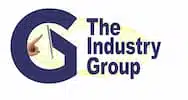HIMSS Review Part 2 – Efficiency – Patient Check-In Kiosks
In the last post I covered some of the issues and advances in money and payments in healthcare. This article explores efficiencies in regard to Patient Check-In.
Cost is perspective dependent– Your opinion or benefit from a healthcare spend is relative to your position in the healthcare system and society as a whole. His expenses are my income which is paid for by your taxes adding to ‘our’ economy that politicians and talking heads love to scream at everyone about. Whether you consider yourself a winner or loser depends on your perspective.
Efficiency is not perspective dependent– Either process is efficient or it is not. Building tools to make individual processes more efficient is at the core of what we do. More is done with less.
Efficiency benefits appear perspective-dependent- Everyone cheers efficiency when improving a process saves time and space, nobody likes to waste those and there are only winners when they are saved. When it comes to anything else, there will be positional losers. Some tasks are repetitive enough to be quantified and automated. Responsibility for that task is transferred to other participants in that process. Exceptions are still dealt with by experts, but by and large the exception to the process must be paid for or ‘earned’ by condition.
Efficiency eliminates positions not Individuals – Personal Computing eliminated the need for a dedicated secretarial pool. The 5XB eliminated the need for switchboard operators. Everyone reading this has benefited greatly from the elimination of those positions. However, survivor’s guilt is not necessary. The individuals leaving those highly skilled positions went on with their lives in most cases using the tools the rendered their old positions obsolete.
Efficiency at HIMSS – A small number exhibitors at HIMSS did showcase some efficiency – increasing, position-eliminating technology that fit the model above. Incremental improvements to inefficient processes were all over the place. Being a seller not a buyer I took a look and got on my way. I didn’t need to hear another pitch or see another show. I already had a front row seat to the best show at HIMSS. Over and over again I had the pleasure of seeing the look of slack-jawed awe as PatientWay’s VP of Sales Shawn Grisim told real stories about paying customers and their experiences in implementing the PatientWay check-in solution. These conversations were all in the present tense referring to past and present installations. Not demo-ware, projections, or BS. Real stories from real implementations. Even to a casual observer the numbers are staggering:
- 90% of all patients walking through the door are checking themselves in.
- (250K visits) x (90% usage) x (5 minutes per check in*) => 18750 hours
- Patients 65 and over represent the majority of users of this system.
Most visitors asked the obvious, “what about the people.” Shawn was able to slay the boogeyman right then and there. The individuals who had been performing these repetitive tasks have been moved to more dynamic roles within their organizations and were happier for it. The relief washing over the faces of these people was clear. There would be no HR nightmare, strike, or other such reaction in their future. Just a better way to serve their customers while keeping their operation efficient enough to remain open and profitable.
Efficient CheckIn benefits the Individual, Provider, and the System – The check-in process is not billable. The perverse incentives that stifle much of the innovation in healthcare are not a factor when moving patients from their world into yours. Adding efficiency to this moving process benefits every participant in this system. PatientWay is the leader. When people ask me why I love what I do, this is the story that I tell them.
*National all-in average is 5 employee minutes per check-in.




